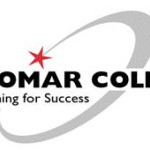- Industry: Education
- Number of terms: 12355
- Number of blossaries: 0
- Company Profile:
Founded in 1946, Palomar College is a public two-year community college in the city of San Marcos, located in north San Diego County, California. Palomar offers over 300 associate degree, certificate programs and is designated by the U.S. Department of Education as an Hispanic-Serving Institution ...
The largest of the molecules in living organisms. It is composed of a chain of nucleotides that code for the synthesis of specific proteins. DNA and RNA are types of nucleic acid.
Industry:Anthropology
The largest natural population of organisms that can potentially interbreed to produce fertile offspring. It is commonly assumed that members of one species are reproductively isolated from members of all other species (i.e., they cannot mate with them to produce fertile offspring). However, we must be cautious in defining species with this criterion because members of very closely related species can sometimes produce offspring together, and a small fraction of those may be fertile to some degree. This is the case with mules, which are the product of mating between horses and donkeys. About one out of 10,000 mules is fertile. This suggests that some species differences are a matter of degree. See morphospeices, biospecies, and paleospecies.
Industry:Anthropology
The large gland in the neck next to the trachea that secretes the hormone thyroxine, which regulates body growth and metabolism.
Industry:Anthropology
The kingdom of living things that includes all animals. They are multicellular organisms that ingest food rather than absorb or photosynthesize it. They also have their own means of locomotion in at least one phase of their life cycles.
Industry:Anthropology
The irregular line of joining between two bones, especially between the bone plates of the skull in vertebrates.
Industry:Anthropology
The intercontinental land connection appeared between Siberia and Alaska that appeared at least twice during the last ice age as a result of sea levels dropping more than 300 feet.
Industry:Anthropology
The infraclass of therian mammal species in which females produce a placenta to connect the fetus to the uterus. This enables nutrients and oxygen to get to the fetus and provides a means of eliminating waste products. As a result, placental mammal or eutherian mammals can carry their young within the uterus until late in fetal development. This has a selective advantage because it results in decreased infant mortality. Included in this infraclass are dogs, cats, bears, whales, monkeys, humans, and many other mammals.
Industry:Anthropology
The innermost membrane of the flexible sac enclosing a fetus. It is filled with amniotic fluid, which helps cushion the fetus and protect it from injury. See cervix for an illustration.
Industry:Anthropology
The infraclass of therian mammal species in which females produce a placenta to connect the fetus to the uterus. This enables nutrients and oxygen to get to the fetus and provides a means of eliminating waste products. As a result, placental mammal or eutherian mammals can carry their young within the uterus until late in fetal development. This has a selective advantage because it results in decreased infant mortality. Included in this infraclass are dogs, cats, bears, whales, monkeys, humans, and many other mammals.
Industry:Anthropology
The earliest stone tool making traditions from the first ones made by Homo habilis down to the most advanced ones of the last Ice Age made by modern Homo sapiens. Paleolithic literally means "Old Stone" Age.
Industry:Anthropology
